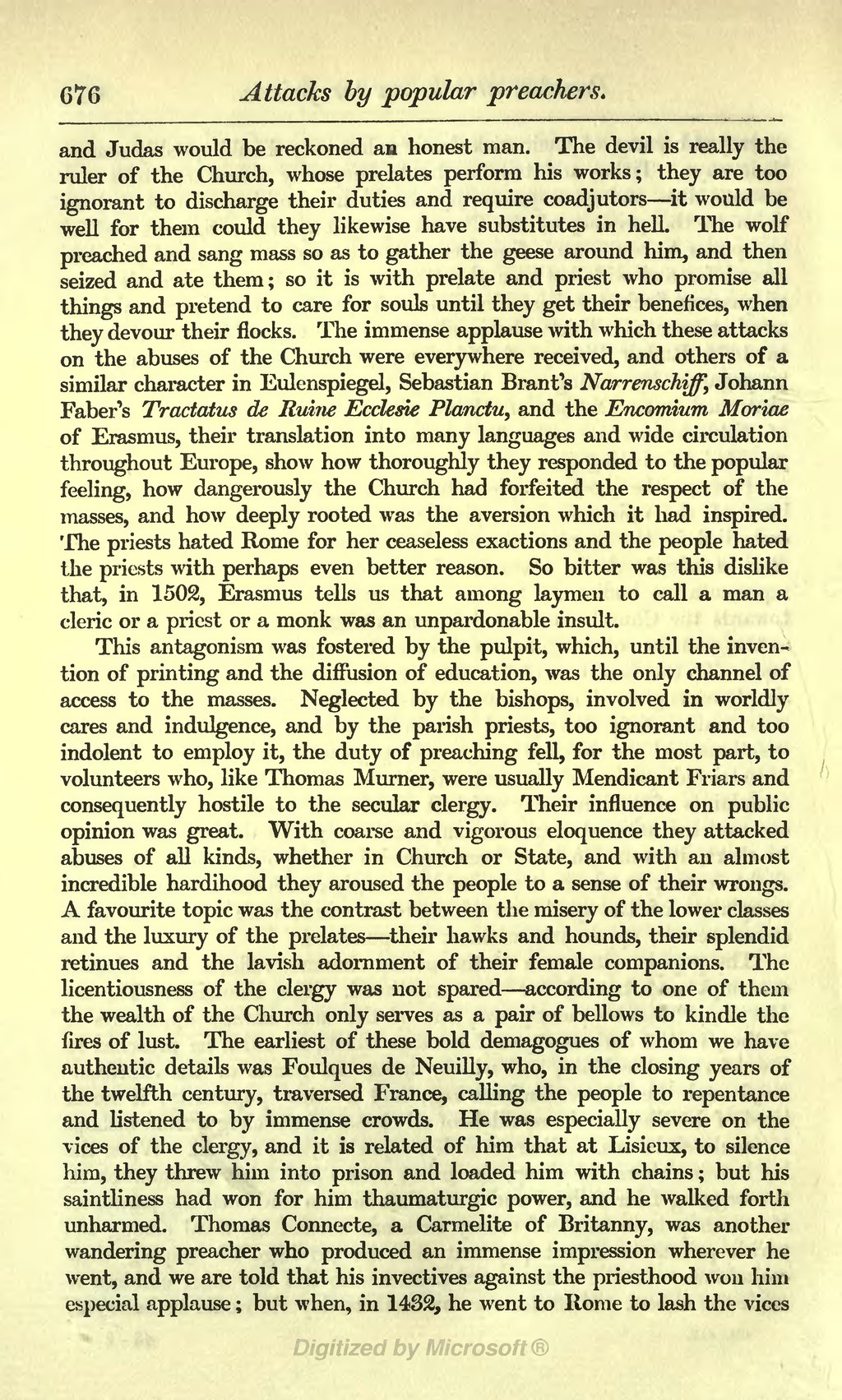and Judas would be reckoned an honest man. The devil is really the ruler of the Church, whose prelates perform his works; they are too ignorant to discharge their duties and require coadjutors—it would be well for them could they likewise have substitutes in hell. The wolf preached and sang mass so as to gather the geese around him, and then seized and ate them; so it is with prelate and priest who promise all things and pretend to care for souls until they get their benefices, when they devour their flocks. The immense applause with which these attacks on the abuses of the Church were everywhere received, and others of a similar character in Eulenspiegel, Sebastian Brant’s Narrenschiff, Johann Faber’s Tractatus de Ruine Ecclesie Planctu, and the Encomium Moriae of Erasmus, their translation into many languages and wide circulation throughout Europe, show how thoroughly they responded to the popular feeling, how dangerously the Church had forfeited the respect of the masses, and how deeply rooted was the aversion which it had inspired. The priests hated Rome for her ceaseless exactions and the people hated the priests with perhaps even better reason. So bitter was this dislike that, in 1502, Erasmus tells us that among laymen to call a man a cleric or a priest or a monk was an unpardonable insult.
This antagonism was fostered by the pulpit, which, until the invention of printing and the diffusion of education, was the only channel of access to the masses. Neglected by the bishops, involved in worldly cares and indulgence, and by the parish priests, too ignorant and too indolent to employ it, the duty of preaching fell, for the most part, to volunteers who, like Thomas Murner, were usually Mendicant Friars and consequently hostile to the secular clergy. Their influence on public opinion was great. With coarse and vigorous eloquence they attacked abuses of all kinds, whether in Church or State, and with an almost incredible hardihood they aroused the people to a sense of their wrongs. A favourite topic was the contrast between the misery of the lower classes and the luxury of the prelates—their hawks and hounds, their splendid retinues and the lavish adornment of their female companions. The licentiousness of the clergy was not spared—according to one of them the wealth of the Church only serves as a pair of bellows to kindle the fires of lust. The earliest of these bold demagogues of whom we have authentic details was Foulques de Neuilly, who, in the closing years of the twelfth century, traversed France, calling the people to repentance and listened to by immense crowds. He was especially severe on the vices of the clergy, and it is related of him that at Lisieux, to silence him, they threw him into prison and loaded him with chains; but his saintliness had won for him thaumaturgic power, and he walked forth unharmed. Thomas Connecte, a Carmelite of Britanny, was another wandering preacher who produced an immense impression wherever he went, and we are told that his invectives against the priesthood won him especial applause; but when, in 1432, he went to Rome to lash the vices
